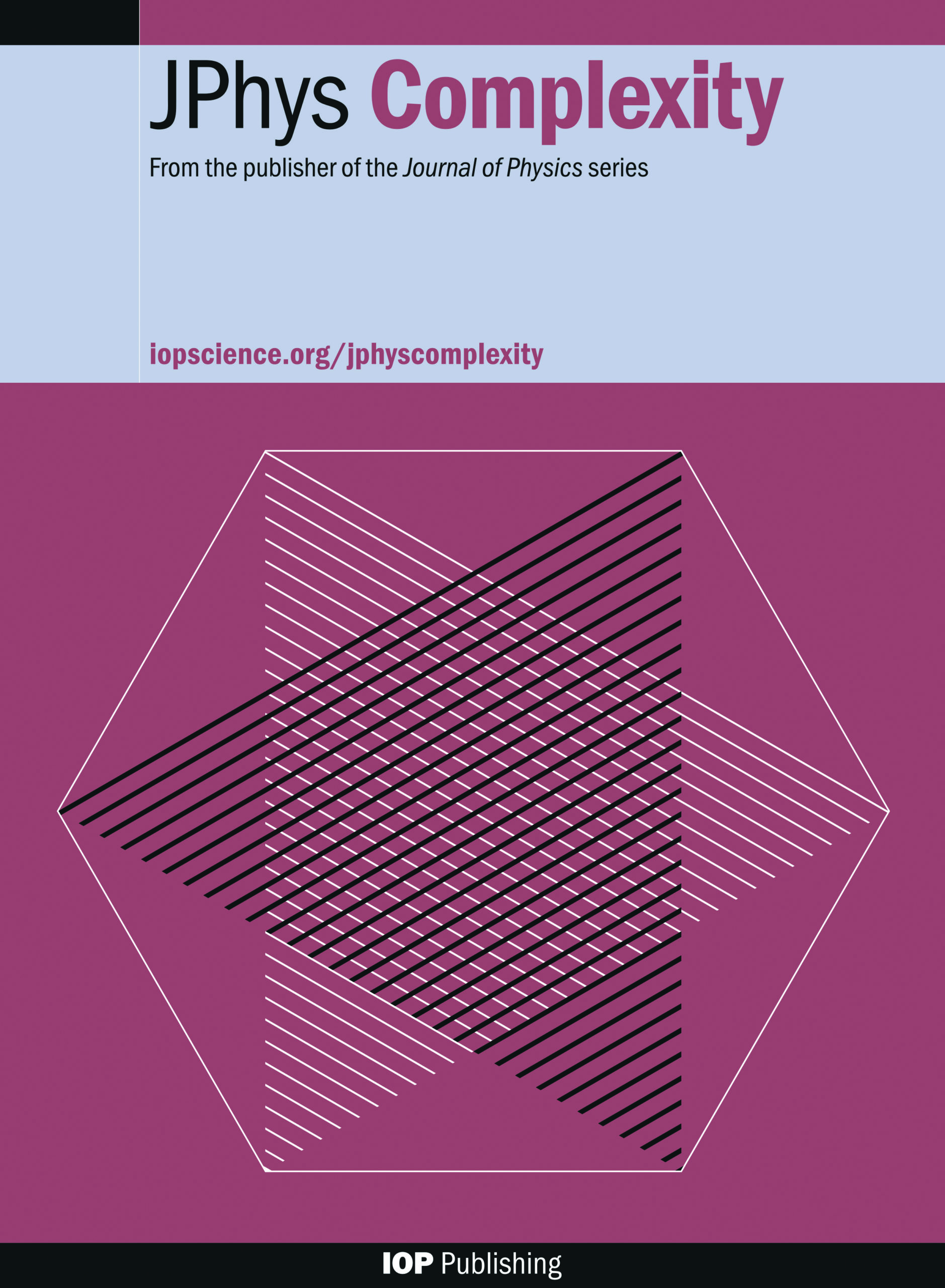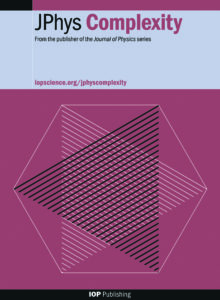JPhysComplexity特刊征稿|Focus on the Earth as a Complex System

特刊详情
客座编辑
- Sebastian Bathiany,德国慕尼黑工业大学/德国波茨坦气候影响研究所
- Niklas Boers,德国慕尼黑工业大学/德国波茨坦气候影响研究所
- 陈晓松,北京师范大学
Jürgen Kurths, 德国柏林洪堡大学/德国波茨坦气候影响研究所 - Tim Lenton,英国埃克塞特大学
- Takahito Mitsui,德国慕尼黑工业大学/德国波茨坦气候影响研究所
主题范围
The Earth can be described as a highly complex, chaotic dynamical system. Its dynamics results from strongly nonlinear interactions between a plethora of processes and components across many different time and space scales. At the macroscopic level, many phenomena emerge from these dynamics that are not easy to describe in terms of fundamental physical laws. We therefore need to develop tools and concepts that help us to detect, analyse and explain such emergent laws. In this context, complexity science plays a key role. Progress in this direction will allow us to fill the gap between the realm of our limited observations and reconstructions on one hand and numerical, process-based models on the other hand, with the ultimate goal of improved representations and predictions of the nonlinear and sometimes abrupt dynamics of the Earth system.
In this focus issue, we aim to advance our understanding of the Earth System from the perspective of Complexity Science, with focus on both data analysis and modelling.
We envision contributions using one of the following or similar:
Methods:
- Dynamical systems (autonomous, nonautonomous & random dynamical systems)
- Stochastic processes and dynamics
- Nonlinear time series analysis
- Complex networks and Graphs
- Machine learning (including e.g. Reservoir Computing, Symbolic Regression, Neural Differential Equations, Random Forests, Deep Neural Networks)
- Causal inference
- Model inference (e.g. Bayesian inference, inverse modelling)
These methods should be applied to one of the following:
Earth System Applications:
- Present-day observations including remotely sensed data
- Numerical simulations from process-based models
- Abrupt transitions and tipping points
- Extreme events
- Paleoclimate dynamics
- Prediction of climate phenomena such as monsoons, ENSO, MJO, or any other climate modes at different time scales
- Scale interaction problems
In case of doubt whether your envisioned contribution would match the intended scope, please do not hesitate to contact the editors.
投稿流程
特刊文章与JPhysComplexity期刊常规文章遵循相同的审稿流程和内容标准,并采用同样的投稿模式。
有关准备文章及投稿的详细信息,可以参阅IOPscience页面的作者指南。
作者可登入期刊主页进行在线投稿,在“文章类型”中选择“特刊文章”,并在“选择特刊”的下拉框中选择“Focus on the Earth as a Complex System”。
投稿截止日期:2022年12月30日。
期刊介绍

- Journal of Physics: Complexity(JphysComplexity)是一本开放获取期刊,发表包含物理学及其相关领域的概念和方法的重要研究成果,用于增进我们应对复杂系统和问题的理解,主要涵盖物理学、生物学、化学、环境科学、社会科学、经济学及相关领域。目前,期刊已开放投稿,所有向JphysComplexity期刊投稿的开放获取文章的出版费用(APC)将由IOP出版社支付。
